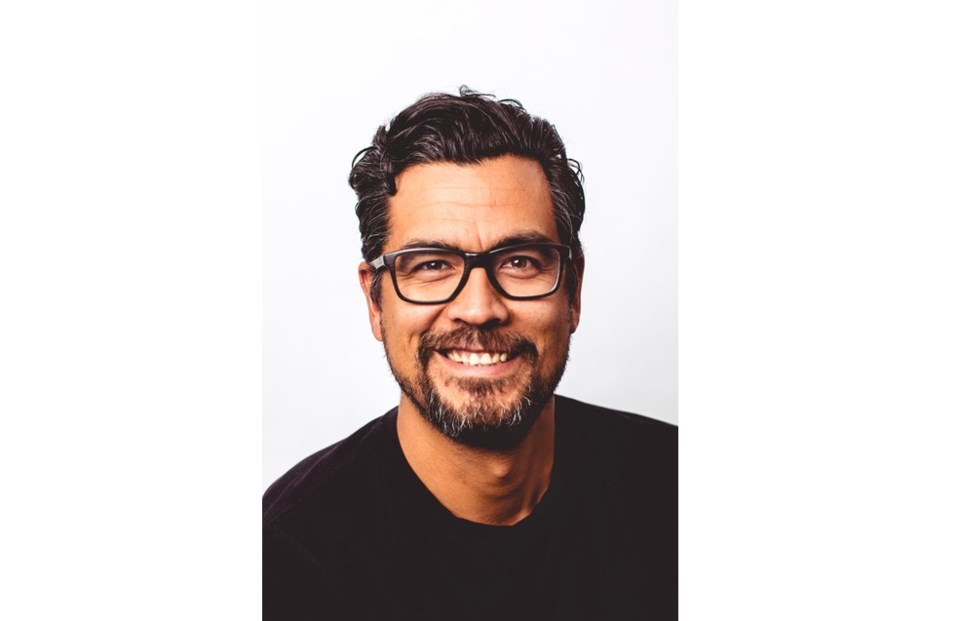Award-winning Indigenous author David A. Robertson just published his debut adult fiction novel, The Theory of Crows, and he shared his writing process with Richmondites last week.
Robertson received the 2021 Writers’ Union of Canada Freedom to Read Award and he is especially known for his books for young readers such as When We Were Alone and The Misewa Saga series.
“It has been nerve-wracking just because I’m more known as a children’s writer, and I think there’s just an inherent worry that maybe your readers won’t follow you over to that form of literature,” said Robertson.
“It’s exciting to expand the scope of my work. And it was really fun, as much as it was difficult writing the book.”
The Theory of Crows is published by Harper Collins Canada and tells the tale of an estranged father and daughter finding their way back to each other while in search of the family trapline. The biggest challenge, said Robertson, was how “intensely personal” the story was.
“As much as it’s an adult fiction novel, so much of it is drawn from my own life and my own experiences. The main character, Matt, is a very thinly veiled version of myself. And the book itself takes some of my own struggles and fictionalizes them, but that doesn’t make them any less real for me,” he said.
Robertson started writing when he was a kid, and the drive to tell stories can be found in his roots as a member of Norway House Cree Nation.
“I think that one of the things that I gravitated towards in writing was the fact that we have a long line of storytellers in our different Indigenous cultures… It’s a way that we used to pass down traditions and ceremony and ways of living and we were good at it. And we did it orally,” he said.
“And now it’s just like harnessing that skill that is flowing through a lot of the things of Indigenous peoples and finding new ways to carry on old traditions.”
Robertson has produced an extensive catalogue of fiction and graphic novels for young readers, and he has since ventured into adult non-fiction, journalism, podcasting, visual essays, and now adult fiction.
Telling stories as an advocate
Robertson’s career as a storyteller is driven by his desire to educate and connect with members of the community, including his immediate community and the larger community across Turtle Island.
“That’s something that I take really seriously and whatever good that I can do to make this country a little bit of a better place to live in is something that I hope to do with my work, whatever that work is,” he said.
Having addressed a wide range of audiences as an educator and activist, Robertson thinks the most important thing to bear in mind is “age appropriateness.”
“But I think there’s a fine line there because you never want to write down to children. Children are very smart. So I never sacrifice the complexity of storytelling and the prose that I put together, just because I’m writing for a younger audience,” he said.
Robertson’s books are used in classrooms and libraries across Canada, but in 2018 and more recently in May this year, he found his books rejected by some school boards. The Great Bear was briefly removed by the Durham school district before being returned to library shelves and classrooms.
“I never learned why they took my book off the shelves in Durham (District School Board). I got kind of vague responses and I don’t know if I’ll ever know, really,” he said.
Robertson said the main lesson he learned from the experience was “a lot of advocacy” is needed to make sure “kids have access to books that are meaningful,” but he never felt he was “fighting the fight alone” because a lot of people stood up for him.
Robertson has also written and spoken extensively on the topic of Truth and Reconciliation. As we approach the second year of the National Day for Truth and Reconciliation, Robertson hopes people are “motivated and re-energized and inspired to walk this path (of reconciliation) together.”
“To me, [the National Day for Truth and Reconciliation] is like a ladder into making sure that there’s not just one day that we continue to learn, that we continue to take meaningful action to heal broken relationships, and to make this country a country that we can feel proud to live in,” he said.



